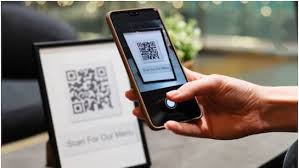
India’s UPI Revolution: 85% Digital Payments Achieved
India is making remarkable strides in the world of digital payments, with an impressive 85% of its transactions being processed through the Unified Payments Interface (UPI). This was highlighted by RBI Governor Sanjay Malhotra during a recent global conference titled “High-Level Dialogue on Forging Economic Resilience through Digital Public Platforms.”
Malhotra emphasized that India's experience serves as an exemplary case study in building inclusive, secure, and scalable Digital Public Platforms (DPPs). He noted that foundational platforms like Aadhaar and UPI have successfully demonstrated how to create resilient and cost-effective public service delivery systems.
The Governor provided insights into how India's DPP ecosystem has played a crucial role in digitalization and financial inclusion, particularly regarding government transfer payments. He articulated that these platforms are designed as public goods, ensuring they are accessible without a profit motive, adhering to the principle of ‘Vasudhaiva Kutumbakam’—the idea that the world is one family.
Malhotra stated that UPI has revolutionized the payment landscape in India, facilitating real-time transactions from one bank account to another. He shared that about 20 billion transactions are processed monthly through UPI, amounting to a value of over USD 280 billion. This transformation enables small vendors and micro-enterprises to accept digital payments, thereby building their financial history and enhancing access to formal credit.
Furthermore, the Governor expressed that the benefits of DPPs should be extended globally. He reiterated India's commitment to fostering international collaboration around these platforms, aiming to accelerate digital transformation worldwide.
As part of this initiative, he mentioned India's development of the Modular Open-Source Identity Platform (MOSIP) for digital identity. This platform is designed to be free, secure, and scalable, allowing other nations to establish their own national digital ID systems. Notably, 27 countries are now either adopting or considering the MOSIP framework to enhance their service delivery systems.
In summary, India's approach to digital payments and public platforms not only showcases remarkable national progress but also sets a precedent for global financial inclusion and innovation.











